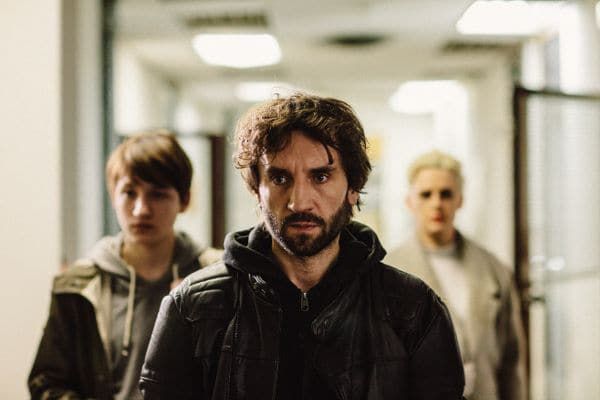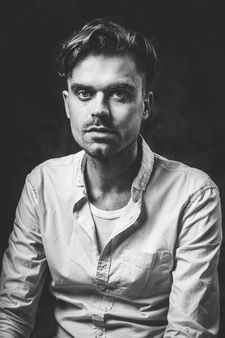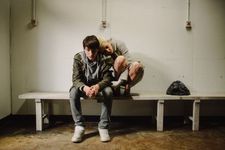 |
| Kuba Czekaj: 'We wanted to base the three protagonists on archetypes' Photo: Munk Studio |
"Many people want to ask about this but they're not brave enough to do it," says Czekaj when I catch up with him during the Berlin Film Festival. "My mum saw both the films at the premiere. It was funny at the premiere of Baby Bump because my mother wore sunglasses and I didn't recognise her. There was a Q&A and my mother took the microphone and asked me a question about "my very hard childhood". Then I realised it was my mother and we began to play, pretending that we weren't son and mother. We were laughing about it at home because everybody thinks I had a very hard childhood. In fact, it was a very normal childhood."
If his early years were run-of-the-mill the world experienced by his two protagonists - at least in their own minds - is anything but, with the young boy in Baby Bump struggling with the physical changes he is going through, while the teenager in The Erlprince is facing the psychological turbulence of becoming an adult. Czekaj shot the two films more or less simultaneously but that meant he was very conscious of making sure they were distinctive despite their shared themes.
 |
| Kuba Czekaj: 'Now I think it's time to tell stories about older children, because I think we're children to the end of our lives' Photo: Munk Studio |
"I knew one film was going to be more physical whereas the other was going to be more psychological. I worked hard to make them distinctive because they cover similar themes. It's about everything, including the form - one is a black comedy and the other is a drama. In The Erlprince, we tried to give the idea of romanticism. Therefore we are playing with the colour, we are on the border of death and life."
The length of time it took to get The Erlprince off the ground did pose something of a problem from a casting perspective because, as Czekaj explores so well in his films, its a time of great physical change.
"It's quite crazy because I met Staszek Cywka when he was 13 and we were worried, because we had no money and he was changing and getting bigger," says Czekaj. "Somebody said that it would be better to find somebody else. But I thought about it and I knew that he was the one who had to get the role. So we changed the behaviour of the protagonist and what his problems are.
 |
| Kuba Czekaj: 'I love to ask but not to give answers' Photo: Munk Studio |
Although Czekaj says his film is "really a simple story - a boy comes of age", this is far from a traditional consideration of adolescence.
"One of the things I love about movies is when you have to find out things," he adds. "I love to ask but not to give answers. I think the building of a film is not only the structure and the dialogue but the means by which you do that. The colours and what you hear are building the emotion, not just the dramatic storyline."
With his diptych finally in the can he says "I think I'll leave my childhood behind me". He adds: "Now I think it's time to tell stories about older children, because I think we're children to the end of our lives."
Read what Czekaj told us about Baby Bump.





















